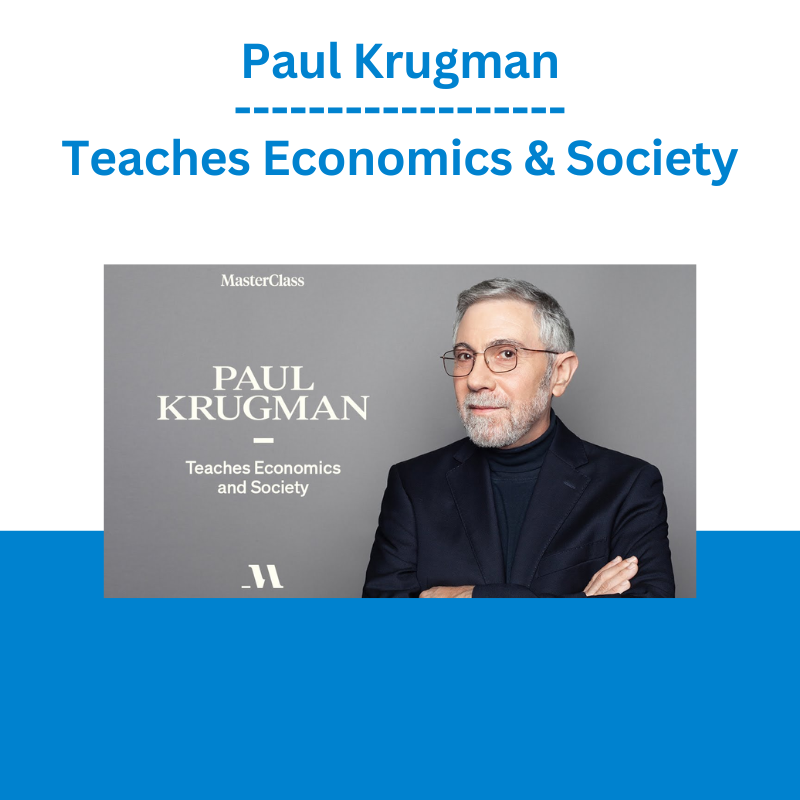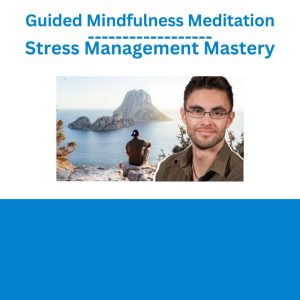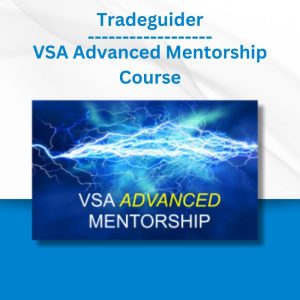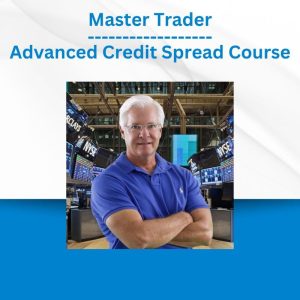*** Proof of Product ***

Exploring the Essential Features of “Paul Krugman – Teaches Economics & Society
“
Nobel Prize-Winner Paul Krugman, economics is not a set of answers—it’s a way of understanding the world. His economics MasterClass is available. Paul It teaches you the fundamental principles that influence political and socio-economic issues such as access to healthcare, tax debate, globalization, political polarization and globalization. Increase your ability to decipher the economics behind the scenes and read between the lines.
Classes covered topics
Each class comes with an in-Depth, downloadable workbook.
1. Introduction
Meet your new instructor: Nobel Prize-winning economist Paul Krugman. Paul will cover many of the issues you see in the headlines everyday—and provide tools to help you make sense of it all.
2. What is it? Economics?
Paul believes that at its heart, economics is about people—how they earn a living and how they spend their income.
3. Two Principles that Underlie the Foundation of Economics
First—people respond to incentives. Second—each transaction has an equal give and take. Paul It breaks down economic thinking into 2 main principles and teaches you how to apply each.
4. Major Economic Developments
Paul walks you through the history of economic thought through the theories of Adam Smith and John Maynard Keynes to make an important point—you have to understand the past to improve the future.
5. Understanding Macroeconomics: What is the Fed and what is IS?-LM (Wonkish).
Learn about how the Federal Reserve works in order to keep the economy strong and the theoretical framework that it uses for its decisions.
6. How ‘08 Happened
Find out about the market trends and unregulated financial transactions that caused our worst financial crisis since 1929 and how you can prepare for an uncertain future.
7. The Economic Theory of Crises
Find out how these concepts worked in Japan’s 1998 crisis and the 2008 recession in USA.
8. Economic Solutions for Crises
Paul Details on monetary and fiscal solutions, how you can rethink deficit spending and what you should do to prepare for the next crisis.
9. Inequality: The Growing Gap
The increasing income gap is a threat to the well-Being part of our economy. Learn about the history of economic inequalities and how race is always connected to economic outcomes.
10. Our Divided Society: Inequality Society
Find out how to advocate for a more egal society and learn the social and cultural consequences of inequality.
11. Understanding Taxes
Paul Explore the data behind “supply side” The potential impact of the 2017 tax cut and how it will affect each person’s taxation.
12. The Economics Technological Progress
Learn about the effects of technological expansion on the job marketplace, the economy in general, and the individual citizen.
13. Health Care: The Problems
American life and American economy depend on health care. Paul Two explanations are given about the economics and market dynamics of private health insurance. “market killers” In our current system.
14. Health Care: The Solutions
This article will be based on examples taken from health systems in Canada, the UK, and Switzerland. Paul This article examines three different approaches to universal health care, highlighting the benefits and drawbacks of each.
15. Theories of Trade (Wonkish).
A discussion about his Nobel Prize-The New Trade Theory is a winning idea Paul This article explains the impact trade has had on the economy over time.
16. Understanding the Hyperglobalized Globalized World
Globalization has forever altered the way that we communicate, and how we do business. Paul discusses the transformative technologies that led to efficient global trade and the impact of those developments on our country’s economy.
17. China’s Disruptive Magic
Paul explains China’s rapid economic growth and details how the influx of their exported goods impact economies and rules of trade worldwide.
18. Economic Geography
Silicon Valley is an example to follow Paul This illustrates how economics can even influence the geographical movement of people.
19. Reading Economics
Paul Learn how to interpret economic developments and stay informed. Learn his tools and techniques to spot critical, accurate information in the latest news.
20. Economists See the World
For PaulEconomists must think critically and learn from other people. Learn his critical thinking methods, such as how to search for natural experiments, look past your own biases, and make use of the information you have.
21. Writing Economics
His column can be used “Myths of Austerity,” Paul He shows how he uses language and current events to simplify complicated topics and keep the reader informed and interested.
22. Closing
Paul His class ends with his parting advice to aspiring activists and policy-makers, or to those who want to become more informed citizens: Remember to be aware, to read and to listen and to continue to be an active participant in society.
Please see the full list of alternative group-buy courses available here: https://lunacourse.com/shop/










 Guided Mindfulness Meditation | Stress Management Mastery
Guided Mindfulness Meditation | Stress Management Mastery  Trade Guider - VSA Advanced Mentorship Course
Trade Guider - VSA Advanced Mentorship Course  Talmadge Harper – Erotic Hypnosis 3.0
Talmadge Harper – Erotic Hypnosis 3.0  Ted McGrath - Fast Client Enrollment Formula
Ted McGrath - Fast Client Enrollment Formula  Dan Gibby - Master Trader - Advanced Credit Spread Course
Dan Gibby - Master Trader - Advanced Credit Spread Course